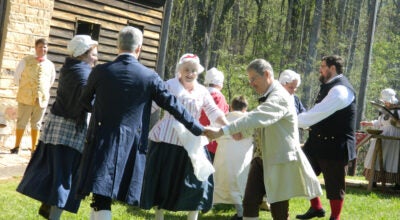Kluttz appointment could help struggling transportation museum
Published 12:00 am Friday, December 21, 2012
SPENCER — Will having former Salisbury Mayor Susan Kluttz at the helm of the Department of Cultural Resources help the troubled N.C. Transportation Museum?
It certainly won’t hurt, museum supporters say.
Gov.-elect Pat McCrory on Thursday appointed Kluttz to head the department, which oversees 27 state historic sites including the Spencer museum.
Down from 18 full-time employees to six, the struggling museum has lost two executive directors within a year and watched the state slash its annual budget allocation from $1.2 million to $300,000.
Attendance plummeted when the museum began charging admission for the first time in its history, an effort to make up the cut in state funding.
Roy Johnson, president of the museum’s nonprofit support foundation, said he does not expect Kluttz to resolve the museum’s financial issues. The General Assembly will determine funding for the museum next year.
But having a Rowan County native leading the department should bode well for the facility, Johnson said.
“She has firsthand of knowledge of the museum, what it is and what it’s potential is,” he said.
The museum and foundation have worked to establish a good relationship with the Department of Cultural Resources, Johnson said. But many people in state government are not familiar with the museum and don’t understand its importance to state history, he said.
With Kluttz, no introductions are necessary.
“We’ve been working with cultural resources and the legislature to make them aware of what the museum means to North Carolina and the region, and having another person who is well-acquainted with our mission is certainly a positive,” Johnson said.
The museum is preparing a five-year business plan, due to Kluttz in February, that will outline how the operation can move forward. Kluttz’s department will present the plan to the legislature.
Likely, it will recommend a mix of state funding, private contributions and money that can be earned on-site through admission and rental fees.
“We are hoping, really, for some stability in what the state can commit to on an annual basis,” Johnson said. “That will allow the museum to move forward without being as concerned about basic survival.”
Johnson said Kluttz’s greatest challenge will be her limited department budget, which has been cut repeatedly during the recession.
“Culture certainly pales in comparison to health and human services needs, yet we know that cultural resources are key to a good quality of life,” Johnson said. “They attract people to the region and they give children a better balance. They are awfully important.”
Contact reporter Emily Ford at 704-797-4264.




